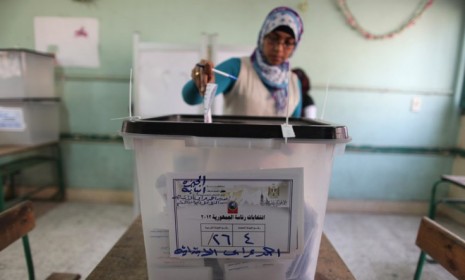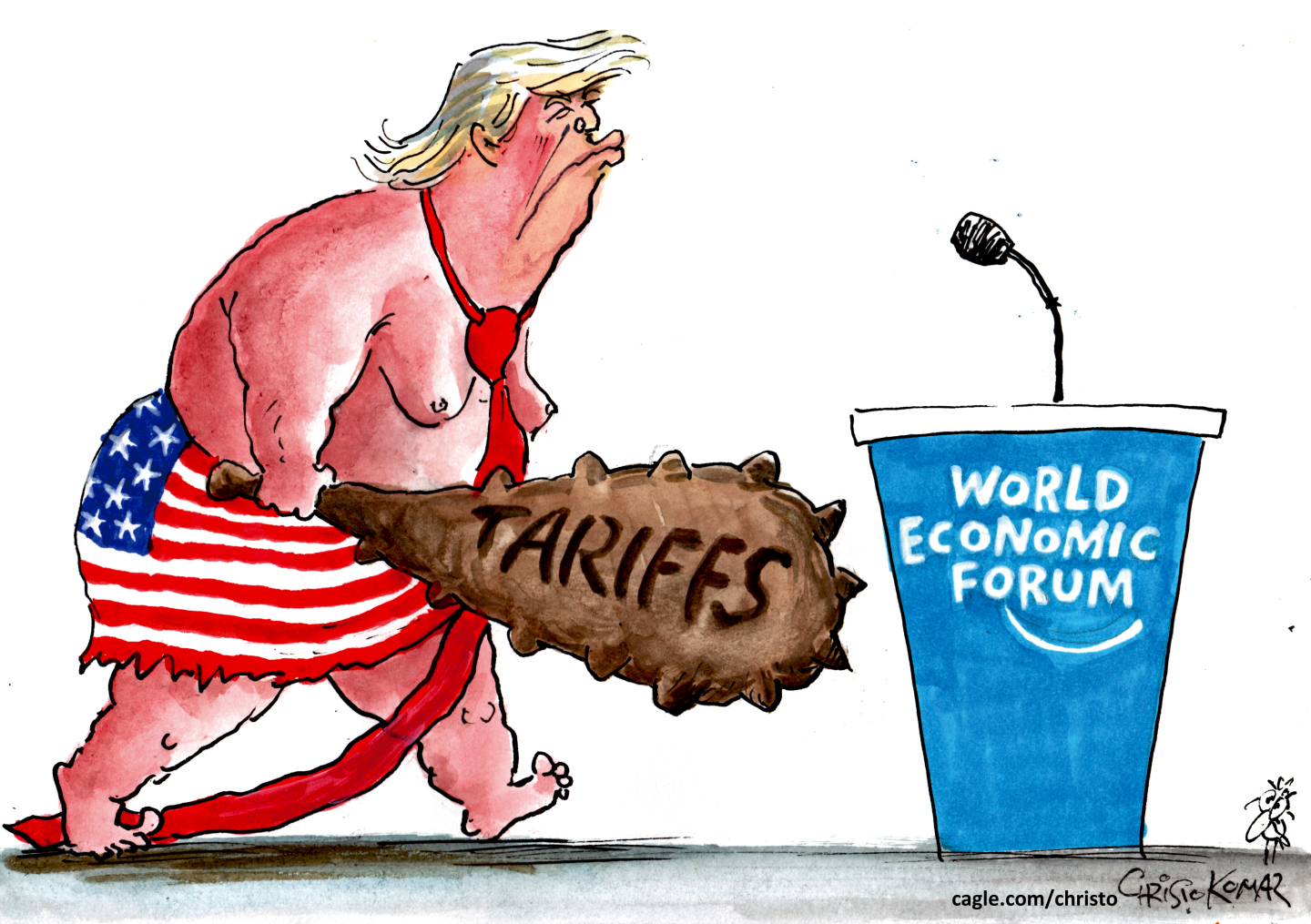Were Egypt's first elections really free and fair?
Early results suggest that two candidates will compete for the presidency in a June run-off, but some observers reported irregularities at the polls

Egypt wrapped up two days of voting Thursday in what's being hailed as the country's first legitimate presidential election. The counting continued Friday, but partial results suggest that Mohammed Mursi, the candidate of the once-outlawed Muslim Brotherhood, has earned a spot in a June run-off. The battle for the second slot remains tight, with a darkhorse leftist candidate, Hamdeen Sabahi, neck-and-neck with Ahmed Shafiq, a former air force commander and holdover from the Hosni Mubarak era. Islamists have threatened to protest if Shafiq wins, saying his victory could only happen in a rigged vote. Some observers reported irregularities, but former U.S. president Jimmy Carter said the election was "blessed with transparency, an eagerness to participate, integrity, and an overwhelming turnout." Was the balloting as fair as Egyptian leaders promised it would be?
Egypt really rose to the occasion: Egypt's newly won democracy has passed its second big test, says Bradley Hope at the United Arab Emirates' The National. The presidential vote was as "free and fair" as the successful parliamentary elections in November. There were isolated problems, but none of the old vote-rigging. The country's "notoriously bureaucratic institutions" came through, with 14,500 judges supervising nearly 14,000 polling stations and substations — a "remarkable feat."
"Egypt's historic vote: 'It feels great ... but it's also scary'"
The Week
Escape your echo chamber. Get the facts behind the news, plus analysis from multiple perspectives.

Sign up for The Week's Free Newsletters
From our morning news briefing to a weekly Good News Newsletter, get the best of The Week delivered directly to your inbox.
From our morning news briefing to a weekly Good News Newsletter, get the best of The Week delivered directly to your inbox.
No. The vote was fixed by the military: This was Egypt's first truly competitive presidential election, says Alaa Al Aswany at The Huffington Post, so it's "a great step forward," thanks to the revolution. Balloting, however, was "very far from being fair" because the Military Council wrote the rules to get the results that it wanted. The election was not transparent at all, so Shafiq and other non-revolutionary candidates were able to spend a fortune without telling voters where they got the money. And, yes, there were signs of vote rigging.
"Are the Egyptian elections fair?"
Egypt is getting better at this: Egypt's electoral system isn't perfect, but it's improving, election specialist Ossama Kamel tells Reuters. There was "a lot better control of campaigning on election day," with none of the shenanigans seen in the parliamentary vote, when Muslim Brotherhood ushers told people "where to vote and, by implication, who to vote for." It's getting harder to stuff ballot boxes and hustle votes on election day, and that's a very good sign.
"Egypt election looks fairer than last: expert"
A free daily email with the biggest news stories of the day – and the best features from TheWeek.com
-
 Ryanair/SpaceX: could Musk really buy the airline?
Ryanair/SpaceX: could Musk really buy the airline?Talking Point Irish budget carrier has become embroiled in unlikely feud with the world’s wealthiest man
-
 Claudette Colvin: teenage activist who paved the way for Rosa Parks
Claudette Colvin: teenage activist who paved the way for Rosa ParksIn The Spotlight Inspired by the example of 19th century abolitionists, 15-year-old Colvin refused to give up her seat on an Alabama bus
-
 5 contentious cartoons about Donald Trump at Davos
5 contentious cartoons about Donald Trump at DavosCartoons Artists take on weaponized tariffs, a cheeky offering, and more
-
 The billionaires’ wealth tax: a catastrophe for California?
The billionaires’ wealth tax: a catastrophe for California?Talking Point Peter Thiel and Larry Page preparing to change state residency
-
 Bari Weiss’ ‘60 Minutes’ scandal is about more than one report
Bari Weiss’ ‘60 Minutes’ scandal is about more than one reportIN THE SPOTLIGHT By blocking an approved segment on a controversial prison holding US deportees in El Salvador, the editor-in-chief of CBS News has become the main story
-
 Has Zohran Mamdani shown the Democrats how to win again?
Has Zohran Mamdani shown the Democrats how to win again?Today’s Big Question New York City mayoral election touted as victory for left-wing populists but moderate centrist wins elsewhere present more complex path for Democratic Party
-
 Millions turn out for anti-Trump ‘No Kings’ rallies
Millions turn out for anti-Trump ‘No Kings’ ralliesSpeed Read An estimated 7 million people participated, 2 million more than at the first ‘No Kings’ protest in June
-
 Ghislaine Maxwell: angling for a Trump pardon
Ghislaine Maxwell: angling for a Trump pardonTalking Point Convicted sex trafficker's testimony could shed new light on president's links to Jeffrey Epstein
-
 The last words and final moments of 40 presidents
The last words and final moments of 40 presidentsThe Explainer Some are eloquent quotes worthy of the holders of the highest office in the nation, and others... aren't
-
 The JFK files: the truth at last?
The JFK files: the truth at last?In The Spotlight More than 64,000 previously classified documents relating the 1963 assassination of John F. Kennedy have been released by the Trump administration
-
 'Seriously, not literally': how should the world take Donald Trump?
'Seriously, not literally': how should the world take Donald Trump?Today's big question White House rhetoric and reality look likely to become increasingly blurred